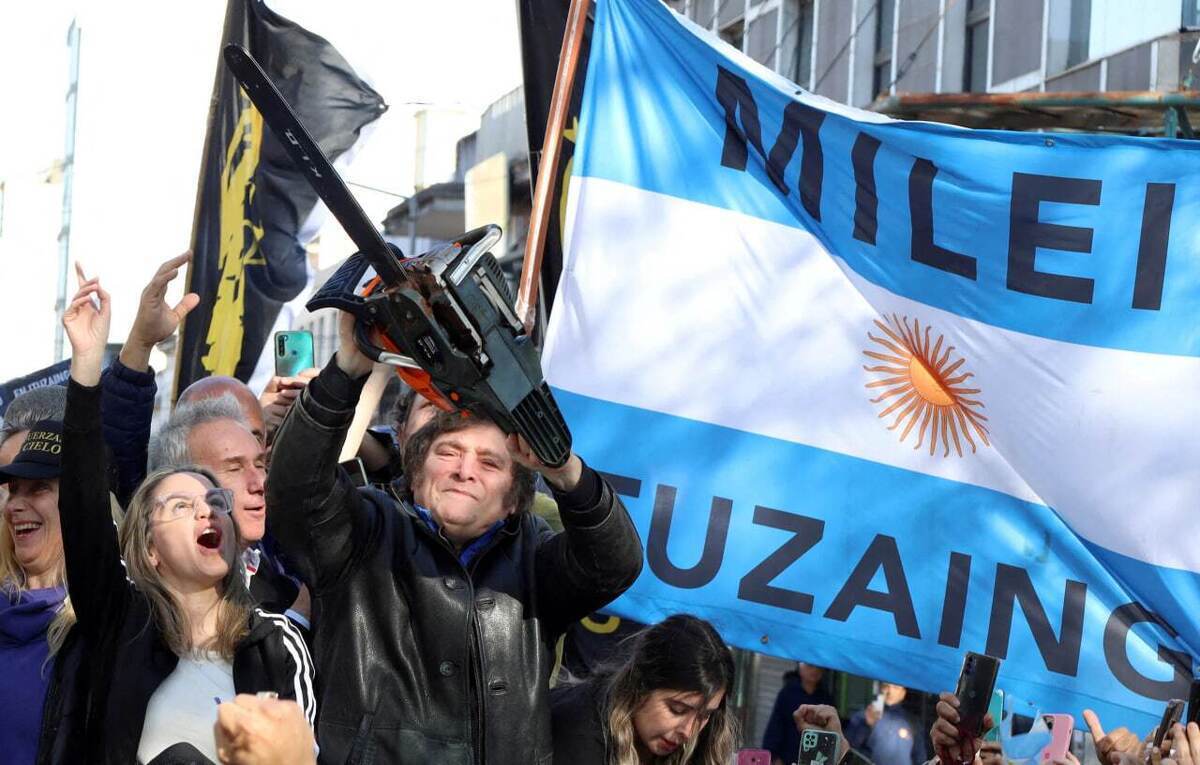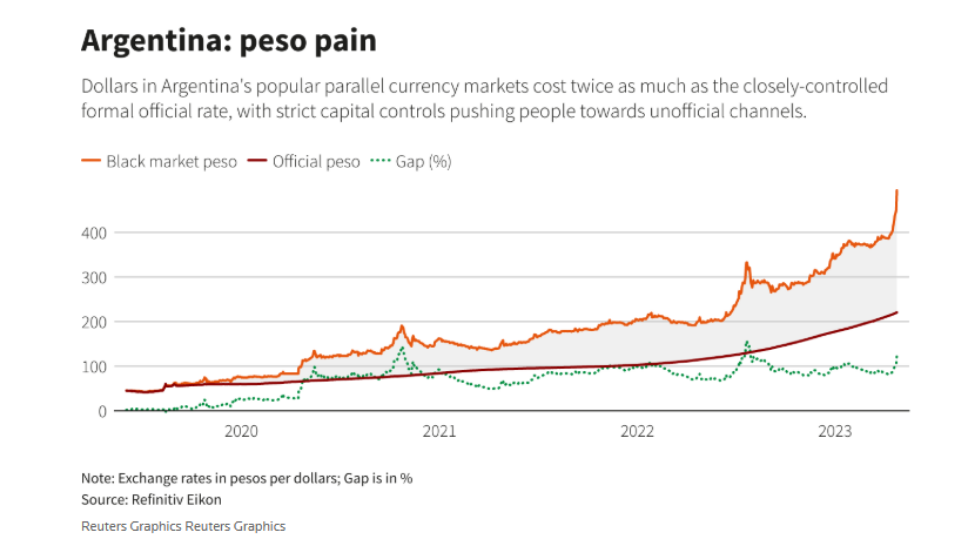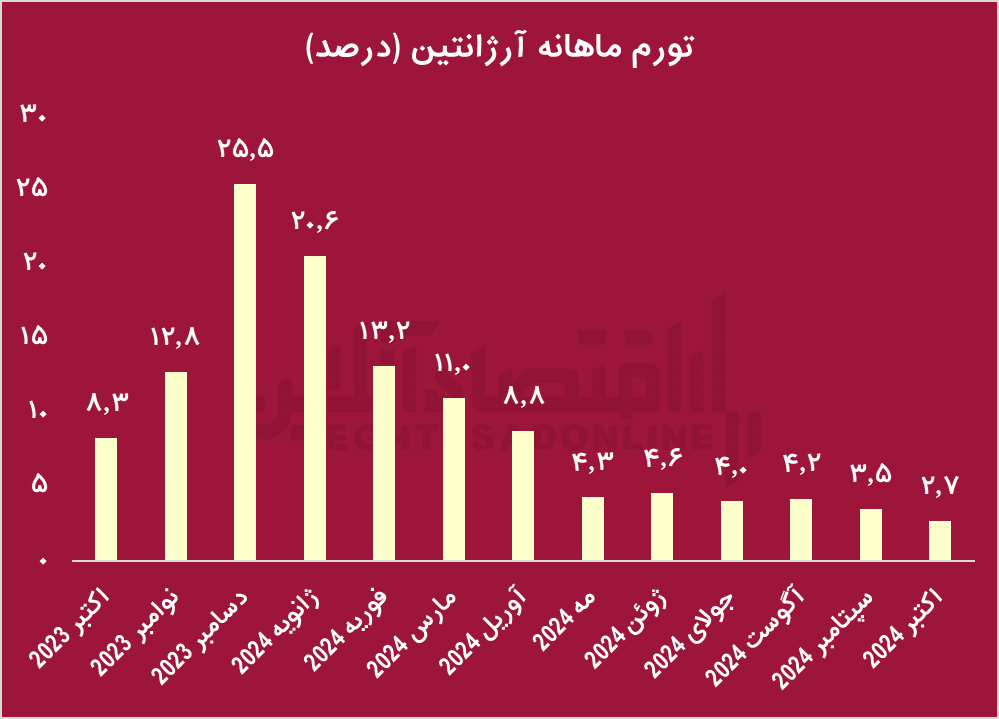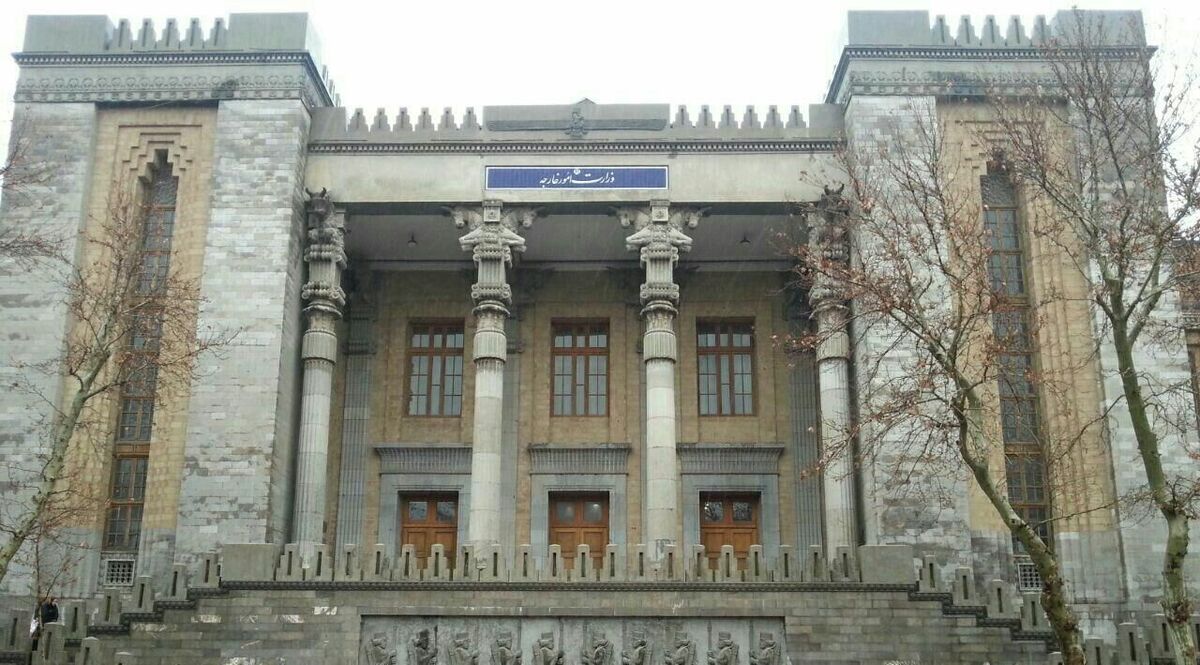
The Secret Behind Argentina’s Escape from Hyperinflation: Will Javier Milei’s Magic Wand Work for Iran?

It is always inspiring to see countries emerge from deep economic crises to achieve growth and development, raising the question of how their experiences can be leveraged for progress. Argentina, which has faced severe economic crises in recent years, found a way out of these crises through tough economic reforms. The policies of Javier Milei, the newly elected president of Argentina, are still being implemented, and despite ongoing challenges, he has managed to take steps toward improving the country’s economic situation. But can Iran’s 14th government follow Argentina's path to overcome its crisis?
EghtesadOnline:In recent years, Argentina's economy faced severe crises, with the most significant ones being extremely high inflation, a sharp depreciation of the Argentine peso, a large budget deficit, and rising foreign debt. The country’s annual inflation last year was about 230%, and its monthly inflation rate was 25%. This led to a reduction in purchasing power and widespread social dissatisfaction. Additionally, the devaluation of the national currency led to an increase in demand for dollars, creating a huge gap between the official and unofficial exchange rates, with the difference exceeding 200%. This situation, especially for lower-income groups, caused immense pressure, with half of Argentina's population living in poverty.

How Did Javier Milei Restore Hope to the Economy?
Amid these crises, Javier Milei was elected as the new president of Argentina, promising to improve the economic situation. He implemented strict austerity measures and significant economic changes that notably improved the country’s struggling economy.
Before Milei came to power, Argentina’s economy was plagued by high inflation and instability. In October 2023, the monthly inflation rate dropped to 2.7%. This rapid decrease from 25.5% to 2.7% was the result of bold decisions and reform policies introduced by Milei.
Removing Subsidies and Supporting the Vulnerable
In the first step, he removed energy subsidies such as those for electricity and gas. This decision was made to keep government spending low and avoid increasing the budget deficit. However, Milei believed that these subsidies were, in fact, fueling inflation. Although these subsidies appeared to benefit the public, the costs were indirectly passed on to the economy through inflation.
Additionally, Milei cut some subsidies that had been provided for years to support people's livelihoods, believing that these subsidies were distributed indiscriminately, contributing to further inflation. However, to support the poorest segments of society, he increased child allowances by 50% and provided special food cards. These policies received mixed reactions. Some believed that they could help control inflation and reform the economic structure, while others feared that the economic pressure would increase on vulnerable groups.
The Miracle of Government Downsizing
To counter the economic consequences of removing subsidies and to prevent potential public unrest, Milei simultaneously reduced many government expenses and took serious steps toward downsizing the government. He believed that reducing costs should start within the government itself. Therefore, he reduced the number of government ministries from 18 to 9. With a smaller government, many costs were reduced, leading to a decrease in the budget deficit and an improvement in the country’s financial situation. This action aimed to reduce government spending, bureaucracy, paperwork, cut administrative corruption, and optimize the country’s administrative structure.
Furthermore, Milei halted many government construction and infrastructure projects, arguing that projects previously handled by the government should be transferred to the private sector to reduce the government’s financial burden and allow for more efficient resource usage.
In line with his economic policies, the Argentine president significantly reduced import tariffs, from 17.5% to 7.5%. He also announced that by the end of the year, all import-related taxes would be eliminated. These actions aimed to reduce import costs and make it easier for producers to access cheaper raw materials and equipment.
Milei also removed stringent investment regulations to make it easier for both domestic and foreign investors to enter Argentina’s market. He believes that reducing legal barriers and creating a space for the private sector to operate freely would pave the way for increased production, job creation, and economic growth. Minimal government intervention in the business sector, he argues, can clear the path for economic development. Despite these reforms, Argentina’s economic growth and investment rates have yet to rise. Achieving these results will require more time to see the positive effects of these policies and build trust with investors.
The changes in economic policies have transformed the country’s trade deficit into a surplus. This success was achieved by strengthening exports and reducing barriers to international trade. As a result of these actions, the central bank’s foreign reserves increased, boosting confidence in the country’s economy and significantly reducing domestic demand for foreign currency, especially dollars. This led to a noticeable reduction in the gap between the official and unofficial exchange rates. This achievement helped reduce exchange rate fluctuations, stabilize the economy, and build trust among economic actors.
In less than two months, Milei turned an annual budget deficit of $2.1 trillion into a $400 billion budget surplus. This outcome resulted from a series of reform policies, including drastic cuts in government spending, the elimination of subsidies, and the reduction of unnecessary contracts with various sectors. One of the most important effects of this measure was the cessation of the central bank’s need to print money to cover the budget deficit, reducing inflationary pressure and stabilizing the economic conditions. Prior to this, the policy of printing money to cover the budget deficit was the main cause of heavy inflation and the depreciation of the peso.
From Domestic Reforms to Foreign Negotiations
Milei’s work to revive Argentina’s economy is far from over, and he is now seeking ways to attract foreign investors. To achieve this, he became the first foreign leader to visit Donald Trump and Elon Musk, offering investment opportunities to attract their attention to Argentina. These efforts are part of Milei’s strategy to enhance domestic production and strengthen economic infrastructure, alongside policies such as tax cuts and removing investment barriers.
However, these policies, particularly the removal of subsidies and reduction of social support, have faced social criticism and resistance from certain groups. Yet, Milei continues to emphasize that these reforms were necessary to restore the country’s economic stability.
Can Iran Benefit from Argentina’s Economic Model?
Javier Milei’s policies in Argentina, including reducing government spending, attracting foreign investment, eliminating subsidies, and downsizing the government, are fundamentally feasible in Iran. However, the success of such policies depends on several factors.
Reducing government spending and eliminating unnecessary subsidies could help reduce Iran’s budget deficit. However, given the high dependence of many segments of society on subsidies, these policies must be implemented carefully and gradually. The government could, for instance, target subsidies only for the lowest-income deciles.
On the other hand, Iran has great potential to attract foreign investors, provided that sanctions are addressed and the investment environment becomes more transparent. Furthermore, reforming bureaucracy and simplifying administrative processes could improve the business climate and encourage investment. Reducing taxes on investment and trade could also strengthen economic incentives.
Milei’s economic policies are attractive in principle, but their implementation in Iran needs to consider the country’s structural and cultural differences. Iran must approach these reforms in a localized and gradual manner. Preconditions such as creating economic stability, improving international relations, and strengthening public trust are crucial for the successful implementation of these policies.





